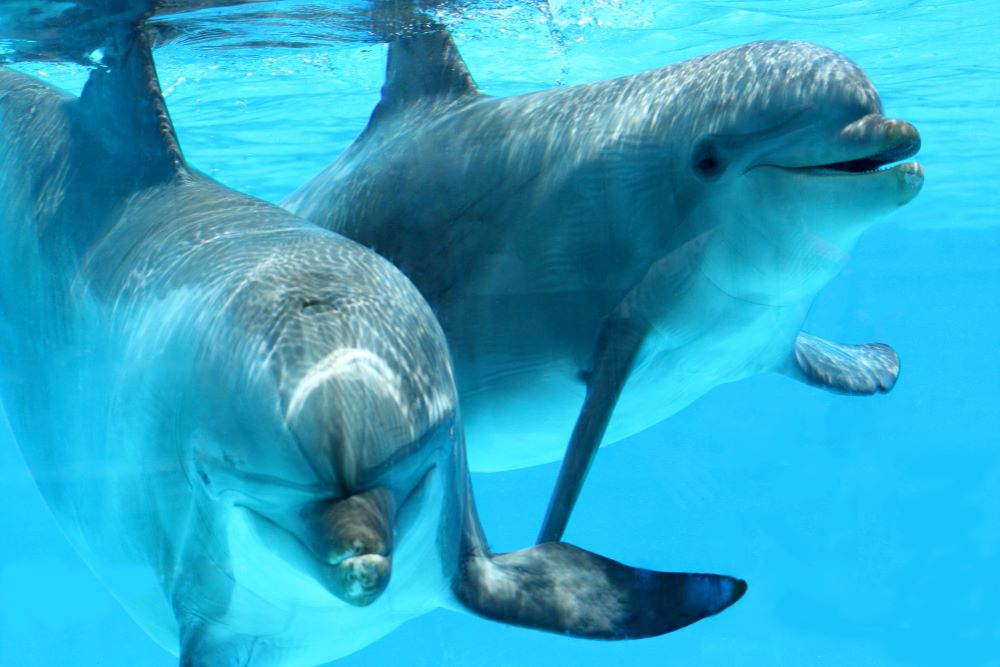As someone who lives in a city renowned for loneliness, I found a new documentary on friendship strangely handy.
The Secrets of Friendship, from filmmaker Judith Pyke, takes an expansive approach to looking at how humans make friends. It examines other interspecies affinities, particularly the social bonds between dogs and people. And it explores other friendships across the animal kingdom between monkeys, dolphins and more.
As a recent study from Harvard University indicates, friendship is critical for the human mind and body. The study shows that social fitness is the number-one factor in a happy life.
So, how do we create new friendships? And why do we align with some people and not with others? It turns out that people who have a lot in common are more likely to form close friendships. This might seem fairly self-evident, but even more curious in how people differ when it comes to creating lasting bonds.
In her research at the University of Winnipeg, psychologist Bev Fehr explored interpersonal relationships among friends, and how those deep bonds relate to gender. Her data, focusing on binary experiences between human males and females, reflected that men make friends quite differently than women. In Fehr's exploration of female friends, she found that the women in her research rated their friendships as so close that nothing in the lab could move the dial on the levels of their intimacy.
As a female monkey, I can relate. Though the options in the experiment for men to engage spanned only from sports to talking — so perhaps there's some limitations built into that study.
Lauren Brent’s studies of macaque monkeys on the island of Cayo Santiago, near Puerto Rico, led to some pretty profound insights in how human relationships form. As some of our closest living relatives in the animal kingdom, monkeys and other primates offer scientists an inside peek into human social interactions.
As Brent explains in the film, much of the social life of primates revolves around fostering and maintaining friends. Macaques make friendship requests in a number of different ways including displays of lip-smacking, head-bobbing and finally grooming. In fact, the monkeys spend more than 20 per cent of their day engaged in combing each other’s fur. They do it so much that it is more than simple upkeep; it is an expression of caring, engagement and yes, friendship.
This activity is particularly important for females of the species, whose relationships with other females can last a lifetime. The footage of the troop members carefully grooming each other gave me a flashback to elementary school, where the girls spent a fair amount of time combing each other’s hair.
But ultimately what good are all these friendships? Turns out if you’re a Grade 4 girl or a macaque monkey, investment in close relationships can have multiple benefits. Monkey friends help each other in different ways by avoiding injury, sharing food and shelter. Turns out that close and stable bonds — good friends in other words — as well as a large number of alliances, all make for a better life.
Friends not only help each other in good times, but more importantly in bad as well. When Hurricane Maria hit Puerto Rico, most of the monkeys survived but the devastation of the storm took out a great deal of the island’s vegetation. This turned into a perfect example of how friendship helps in times of stress. Instead of relying solely on their close relationships, the monkeys added more acquaintances to their social networks. Brent hypothesizes that this behaviour was driven by the need to access shelter from the sun. The more friends you have, the better your chances of getting a spot in the shade.
So, social networks can be implemented to solve major problems. The same holds true for humans. The physical benefits are considerable, but the implications on mental health and well-being are even more significant.
How do we learn how to form friendships? This question is at the centre of a study at the University of Cambridge Baby Lab, where researchers followed 120 babies to figure out when and how humans first engage with friendly behaviour. A series of experiments monitored the different hemispheres of the brain to see neural networks at work, as it were.
When babies were shown a video of people playing peek-a-boo, intense brain activity lit up the screen like a laser light show. Non-social images, on the other hand, didn’t incite much interest. The ramifications of this research aren’t just about how babies learn to read social cues. There are also implications for children who fall on the autism spectrum. Identifying early signs of autism could help neurodiverse kids contend with the challenges of relationships.
What is a friend? As the film indicates, it can be anything, but most especially it can be a dog. Across the species divide between humans and dogs, a deep and profound relationship has developed over the centuries. When humans first formed relationships with a pack of wolves during the last ice age, they selected animals that already had an innately friendly disposition.
Friendliness in dogs might be coded in their DNA, but do dogs only like humans because we feed them? Behavioural scientist Clive Wynne set up an experiment to see if dogs only hang out with humans just for the food. As his studies demonstrate, eight times out of 10, dogs will choose their humans over a bowl of treats. But things get more interesting when humans pretend to be trapped in a box to see if their dogs will free them. Some do and some don’t, but the empathy that dogs express for humans in distress is off the charts. With more than 80 million dogs in North America alone, the heart of human-dog relationships may reside in this intense loyalty.
It’s not only dogs who demonstrate life-long loyalty to their friends.
In Shark Bay, Australia, home to one of the world’s largest seagrass meadows, bottlenose dolphins have developed some of the most complex social networks on the planet. Scientist Richard Conner says, “Shark Bay is the holy grail.... They form these multi-level friendships in this open social network. There is nothing comparable to them outside of humans.”
In the bottlenose dolphin world, it is the males of the species who form the most long-lasting alliances with other males through a variety of behaviours. Matching movement, called synchrony, helps with bonding. In one particular male-on-male activity, affectionately called "the tango" by researchers, males will mirror each other’s movements. While females also form friendships, it’s the males who invest most deeply in creating alliances, spending up to 100 per cent of their time together. Physical contact is a big part of bonding with the bros. There is goosing, mounting and the occasional erection, although, the documentary doesn’t go much into this homoerotic display.
In addition to physical contact, male dolphins spend a fair amount of time exchanging calls with other. Yakking in other words. Each dolphin has its own signature whistle, akin to a name. If one calls out, others immediately attend to their friends. The elaborate social networks of dolphin society have taken decades to map. Core alliances (close friends) and second-order alliances (buddies and acquaintances) all add up to one of the most complex social structures on the planet.
Loneliness is associated with greater incidence of heart disease, stroke and dementia. Lonely people actually see the world quite differently from more sociable folks. So, how to make more meaningful connections? And more importantly, how can lonely Vancouver types make friends? Short of trying to comb some random stranger’s hair or mimicking other people’s movements, the tried and true still hold true. All the usual stuff: dancing, eating and laughing all are key. Empathy is also a critical element in human socialization. So, get out there, be friendly and do it like doggies and dolphins!
‘The Secrets of Friendship’ airs on CBC’s 'The Nature of Things' tonight, March 24. ![]()
Read more: Health, Film, Science + Tech

















Tyee Commenting Guidelines
Comments that violate guidelines risk being deleted, and violations may result in a temporary or permanent user ban. Maintain the spirit of good conversation to stay in the discussion.
*Please note The Tyee is not a forum for spreading misinformation about COVID-19, denying its existence or minimizing its risk to public health.
Do:
Do not: